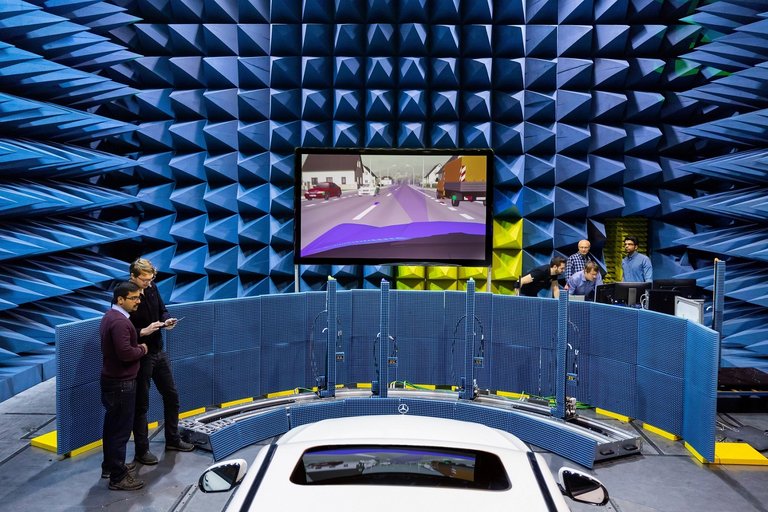A large-scale German-Japanese research project, led on the German side by TU Ilmenau, aims to make highly automated vehicles roadworthy. Scientists and development engineers from high-ranking German and Japanese companies and research institutions are developing test procedures that will help vehicle manufacturers in the future to prove the safety of new self-driving vehicles before they are approved.

The three-year research project involves, among others, the vehicle manufacturers Mercedes Benz, Toyota, Honda and Nissan, as well as the test bench manufacturer AVL, the German Aerospace Center, Sony and Continental. The project is worth almost 4.7 million euros, of which the Federal Ministry of Education and Research is financing 3.7 million euros and the research partners themselves one million euros.
Safety for self-propelled vehicles
If automated and increasingly self-driving vehicles are approved for road traffic, the United Nations stipulates that the safety of all sensor functions required for autonomous driving must be demonstrated. The "safety of the intended function" can save lives. Vehicles must function more reliably in traffic without the ability of a driver to intervene than with it, and must be able to find their way around reliably, especially in dangerous situations, and communicate efficiently and effectively with other road users. Until now, these safety requirements have been proven by real driving tests. In order to avoid having to complete hundreds of millions of test kilometres, the vehicle and mobility industry is now relying on virtual driving tests. For automated vehicles, they have yet to be developed and prepared for global standardization - now in the VIVID research project.
Cooperation between Germany and Japan

In 2017, the heads of government of Germany and Japan agreed to cooperate on research into connected and automated driving. As part of this cooperation, the Federal Ministry of Education and Research has now launched three research projects, including the project "German Japan Joint Virtual Validation Methodology for Intelligent Driving Systems (VIVID)", in which reliable and efficient test procedures for autonomous vehicles are being developed. VIVID was initiated by Prof. Matthias Hein, Director of the Thüringer Innovationszentrum Mobilität (Thuringian Innovation Center for Innovation in Mobility) at TU Ilmenau, in a group of experts on automated and connected driving convened by the Ministry of Research. He was able to build on the extremely successful predecessor project SafeMove, in which automotive radars were tested in the VISTA research facility. This globally unique combination of radio measurement hall and virtual road environment is now the research and development platform for the VIVID project. In order to be able to test all functions of the vehicle sensor technology, the scientists around Prof. Hein will develop virtual test methods and environments here for the sensor systems that are of central importance for autonomous driving. These environmental sensor systems include, in particular, cameras, radar and its optical counterpart lidar. Standardized, these innovative technologies can be tested for their functional safety in a wide variety of realistic scenarios and environments and then approved worldwide. In the future, they will benefit not only vehicle manufacturers, but also suppliers and test facilities.
Contact
Prof. Matthias Hein
Director of the Thüringer Innovationszentrum Mobilität

